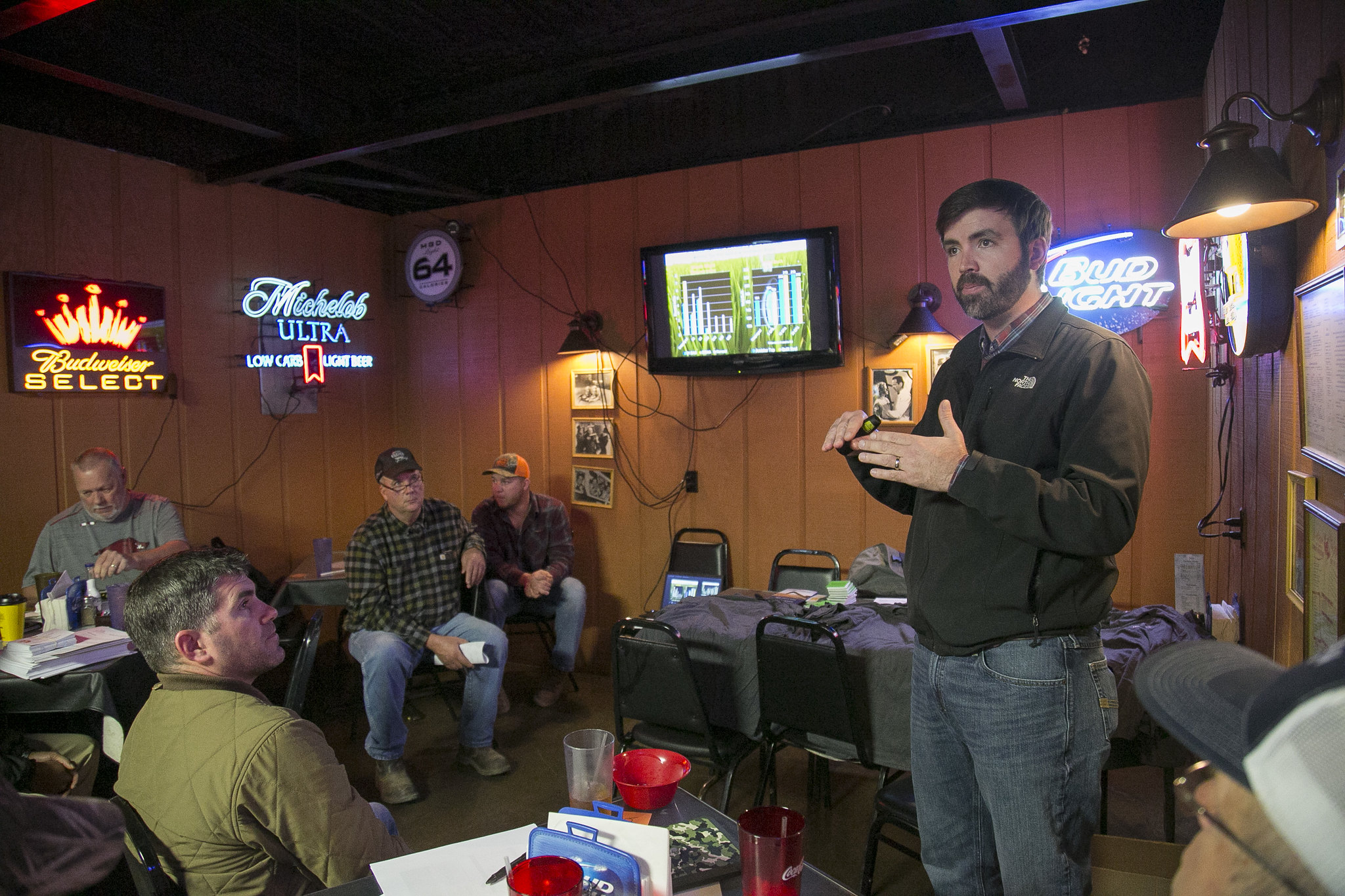Feb. 14, 2020
Wary of another wet winter, Arkansas rice growers keep an eye out for a dry window
By Ryan McGeeney
University of Arkansas System Division of Agriculture
Fast Facts:
- Intermittent rains delaying winter field prep for many growers
- Some 2019 prevented planting fields may give growers a head start
- Extension agents recommend staying with rotations
(470 words)
(Newsrooms: With art available at https://flic.kr/s/aHsmLoXGd3)
(Download this story in MS Word format here.)
MORRILTON, Ark. — When it comes to deciding between planting rice, soybean or other crops in 2020, it’s not just a question of markets and futures contracts. For many growers, it’s a question of when the ground will be dry enough to work.
“I’ve got one rice grower in my county,” said Kevin Van Pelt, agricultural agent for the Conway County Cooperative Extension office. “He said he’s praying more often, and harder.”
The winter of 2019-2020 bears a striking resemblance to that of the previous year, in that persistent, intermittent rains have saturated soils, with no chance to dry out long enough to move in heavy equipment for the fieldwork necessary prior to spring planting.
Jarrod Hardke, extension rice agronomist for the University of Arkansas System Division of Agriculture, said one bright, if ironic spot may be that the mass of prevented planting in the 2019 growing season did at least leave some fields prepared for planting in 2020.
“If you see yourself a field ready for planting right now, chances are, that happened last summer,” Hardke said.
The wet weather has also made it more difficult and time-consuming to provide accurate recommendations based on soil testing.
“A large percentage of the samples that came into the soil testing lab this year were pretty muddy,” Hardke said. “A big concern with a wet sample is that it’s harder to be precise in your depth. The process also takes longer, because those samples take longer to dry out before they can be tested.”
Kevin Lawson, Faulkner County Cooperative Extension chair, said growers throughout the Arkansas River Valley are particularly concerned about the flooding potential that has increasingly reared its head in recent years, causing hundreds of millions of dollars in crop losses.
In late May of 2019, the Arkansas River flooded, causing a major levee break near Dardanelle. The Lollie levee in Faulkner County topped, but managed to hold.
“It won’t take another flood like last time to come over that levee,” Lawson said. “People are concerned about it.”
While soybean typically presents a reliable planting alternative to rice, continually depressed commodity prices have made it less attractive in the River Valley and elsewhere. While the signing of the first phase of a trade agreement with China did initially raise hopes of a revitalized export market for the state’s No. 1 crop, soybean and grain markets fell Wednesday night as reports that the spreading coronavirus may reduce China’s overall demand for agricultural products.
Lawson said that while growers will naturally gravitate toward the best market prices when allocating their crop land for planting, he advised them to stick with their regular crop rotations for the sake of their long-term viability.
To learn about extension programs in Arkansas, contact your local Cooperative Extension Service agent or visit www.uaex.uada.edu. Follow us on Twitter at @AR_Extension.
About the Division of Agriculture
The University of Arkansas System Division of Agriculture’s mission is to strengthen agriculture, communities, and families by connecting trusted research to the adoption of best practices. Through the Agricultural Experiment Station and the Cooperative Extension Service, the Division of Agriculture conducts research and extension work within the nation’s historic land grant education system.
The Division of Agriculture is one of 20 entities within the University of Arkansas System. It has offices in all 75 counties in Arkansas and faculty on five system campuses.
Pursuant to 7 CFR § 15.3, the University of Arkansas System Division of Agriculture offers all its Extension and Research programs and services (including employment) without regard to race, color, sex, national origin, religion, age, disability, marital or veteran status, genetic information, sexual preference, pregnancy or any other legally protected status, and is an equal opportunity institution.
# # #
Media Contact: Ryan McGeeney
Communication Services
U of A Division of Agriculture
Cooperative Extension Service
(501) 671-2120
rmcgeeney@uada.edu
